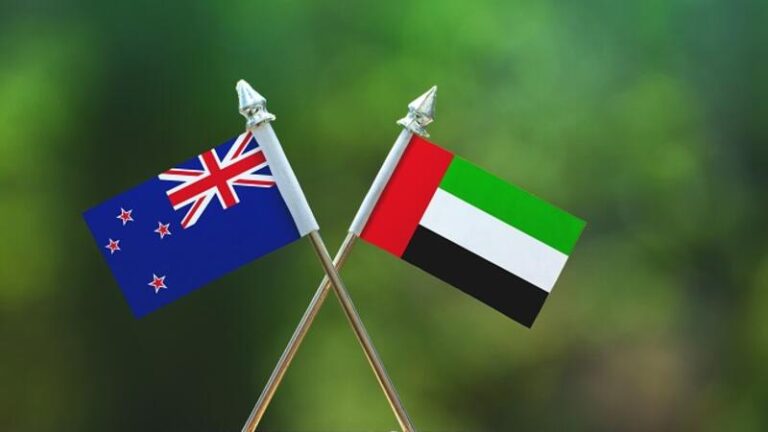The 2025 visit of New Zealand’s Prime Minister Christopher Luxon to the UAE marks a turning point in their 40-year diplomatic relationship. Here’s how both nations are stepping into a brighter, more connected future.
During his official visit to the UAE on January 14, 2025, New Zealand’s Prime Minister Christopher Luxon met with UAE President Sheikh Mohamed bin Zayed Al Nahyan to celebrate and advance their flourishing partnership. With both nations marking 40 years of diplomatic relations, the leaders laid the foundation for deeper economic, cultural, and environmental cooperation.
Key Agreements and Economic Impacts
The highlight of the visit was the signing of two landmark agreements:
- New Zealand-UAE Comprehensive Economic Partnership Agreement (CEPA): Aims to reduce tariffs, expand market access, and propel trade relations to new heights.
- Agreement on Promotion and Protection of Investments: Ensures greater security and support for UAE investments in New Zealand, including renewable energy and infrastructure.
These agreements come as non-oil trade between the two countries reached over $642 million in the first nine months of 2024, an 8% increase from the previous year. Dairy, meat, and horticultural exports from New Zealand remain central to the UAE’s food security, while the UAE continues to serve as a logistics hub for New Zealand’s broader regional trade.
Prime Minister Luxon also met UAE investment authorities to discuss new opportunities, particularly in renewable energy projects, as both nations focus on sustainable growth.
Deepening People-to-People Connections
Cultural and personal ties are an essential part of the New Zealand-UAE partnership:
- The Indigenous Peoples Economic and Trade Cooperation chapter under CEPA strengthens collaboration on indigenous and cultural trade initiatives.
- New Zealand announced plans to allow UAE passport holders to use E-Gates for seamless travel starting in 2025.
- Over 4,000 New Zealanders call the UAE home, benefiting from the UAE’s vibrant multicultural community.
Daily flights and mutual visa waivers further promote tourism and business exchanges, while past events like the Te Aratini Festival at Dubai Expo 2020 underscore shared values of inclusion and tolerance.
Commitment to Sustainability and Climate Action
Both nations emphasized their role as global leaders in renewable energy and climate action:
- They reaffirmed their commitment to tripling renewable energy capacity by 2030, aligning with the UAE Consensus forged during COP28.
- Joint projects, such as the LAKARO Phase 2 Solar Energy Project in Fiji and other Masdar-led initiatives, highlight their shared focus on clean energy in the Pacific.
- The UAE’s recent accession to the Antarctic Treaty offers a new avenue for cooperation on scientific research.
Global Cooperation and Peace Efforts
In addition to bilateral initiatives, the leaders addressed pressing global issues, including:
- Advocating for peace in Gaza, Ukraine, and Sudan, emphasizing diplomacy and humanitarian relief.
- Supporting multilateralism and the international rules-based system as pillars of global stability.
Why This Visit Matters
This visit signals a new era for the New Zealand-UAE partnership, strengthening ties across trade, culture, and climate action. By leveraging each other’s strengths—New Zealand’s agricultural expertise and innovation, and the UAE’s strategic position and investment capacity—both nations are poised for a prosperous and sustainable future.
Read this article to know How UAE is Rising as a Haven for Wealthy UK Expats
For further details, clarification, contributions or any concerns regarding this article, please feel free to reach out to us at editorial@tax.news. We value your feedback and are committed to providing accurate and timely information. Please note that all inquiries will be handled in accordance with our privacy policy.



